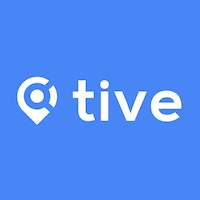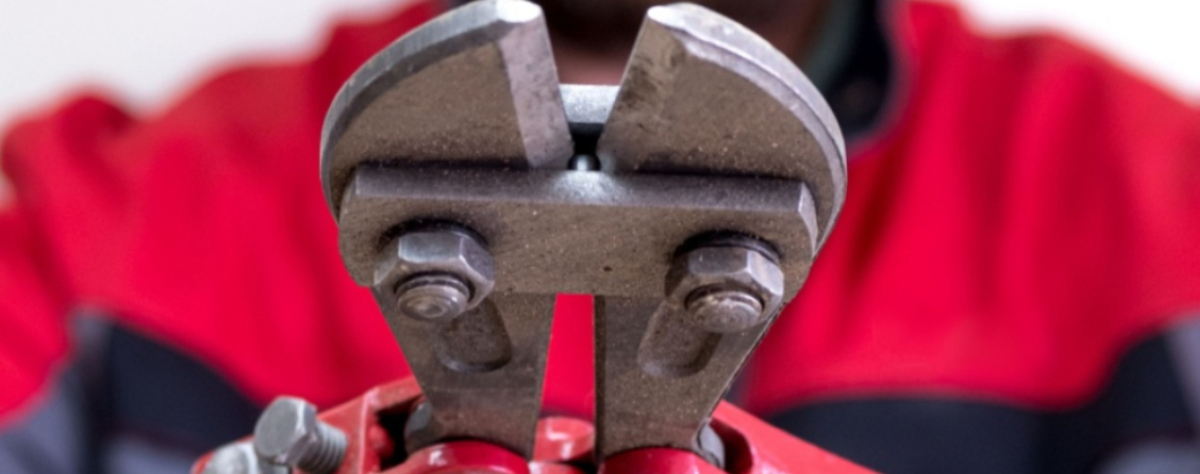Wochenrückblick: Wenn Kupfer teuer wird, fangen die Leute an, es zu stehlen

July 17, 2025
October 24, 2025
x min. Lesedauer

Die globalen Wirtschaftskräfte haben die Kupferpreise in die Höhe schnellen lassen. Aber wissen Sie, wer sich nicht darüber beschwert? Frachtdiebe. Der Kupferdiebstahl ist in diesem Jahr um 61% gestiegen, und je mehr die Preise in die Höhe schnellen, desto mehr wird jeder Lkw zum Ziel. In der Zwischenzeit hat die Lkw-Branche ein neues Cybersicherheits-Playbook veröffentlicht, gegen das sie sich schützen soll zunehmend listige digitale Diebe, während GrubMarket 50 Millionen US-Dollar sammelte, um KI in die amerikanische Lebensmittelkette zu bringen (beeindruckend, wenn man bedenkt, dass es der SEC gerade eine Geldstrafe von 8 Millionen US-Dollar für illegale Spendenaktionen gezahlt hat). Und während die US-Pharmagiganten wegen steigender Kosten in Panik geraten, hat Zuellig Pharma aus Singapur im Stillen ein profitables Geschäftsmodell aufgebaut. Lass uns anfangen!
Handelspolitik: Kupfer wird getroffen, Pharma bekommt Warnschuss
Das neueste wirtschaftspolitische Updates traf Kupfer mit einem Zoll von 50% und drohte Pharmazeutika mit einer Rate von 200% während eines Treffens letzte Woche. Das kommt zu den 25% hinzu, die bereits Autos und Autoteile hämmern, plus die 50% auf Stahl- und Aluminiumimporte.
Die Kupfermärkte gehen in den vollen Panikmodus
Kupfer ist überall— dein Handy, dein Auto, im Grunde alles, was Strom braucht — und Amerika importierte letztes Jahr im Wert von 17 Milliarden Dollar, allein Chile lieferte uns 6 Milliarden Dollar. Es überrascht also nicht, dass die Kupfer-Futures unmittelbar nach Bekanntwerden der Nachricht um 15% auf einen Rekordwert von 5,68$ pro Pfund stiegen, was einen massiven Anstieg von 38% in diesem Jahr beendete. Kein Wunder, dass Ole Hansen von der Saxo Bank den Anstieg der Kupferpreise als „massive Steuer für Verbraucher“ betrachtet.
Pharmazeutische Bedrohungen und globale Unruhen
Die Gefahr eines „sehr bald“ -Zolls von 200% auf Arzneimittel verschärft die Situation ebenfalls. Alles deutet jedoch darauf hin, dass, falls sie eingeführt werden, schrittweise erfolgen wird, um weitere Unternehmen in den Staaten zu überreden. Australiens Schatzmeister Jim Chalmers bezeichnete die Bedrohung durch die Pharmaindustrie als „sehr besorgniserregend“ und stellte fest, dass Exporte in Milliardenhöhe auf dem Spiel stehen.
Autobahnüberfall wird Hightech: Kupferdiebe stoßen auf eine Goldgrube
Steigende Kupferpreise sind diese Woche ebenfalls in den Nachrichten, weil Kriminelle dadurch rot sehen — und zwar rentabel. Berichte über Kupferdiebstahl aus Lastwagen steigen schneller als der steigende Wert des Metalls; Kupferdiebstähle sind im ersten Halbjahr 2025 im Vergleich zum Vorjahreszeitraum bereits um 61% gestiegen (aber TIVE weiß ein oder zwei Dinge darüber, wie man sich dagegen wehrt).
Kriminalität zahlt sich aus, wenn Kupfer in die Höhe schnellt
Verisk CargoNet bezeichnete Kupfer als „einen der wichtigsten Zielrohstoffe für Schwellenländer“ und Kriminelle werden kreativ, wenn es darum geht, Geld einzulösen. Keith Lewis, Vice President of Operations bei Verisk CargoNet, erklärt, dass „Kriminelle von Rohstoff zu Rohstoff springen“ — wenn die Nachfrage steigt, Diebe folgen dem Geld. Im Gegensatz zu gestohlenen Elektronikgeräten mit Seriennummern verschwindet Kupfer leicht auf fragwürdigen Schrottplätzen und Schwarzmärkten. Diebe haben Kupfer von den Eurostar-Eisenbahnlinien (wodurch die Verbindung zwischen Großbritannien und Frankreich über 2.000 Fuß unterbrochen wurde), Straßenlaternen und Telekommunikationskabeln abgestreift, aber LKW-Transporte bieten den ultimativen Preis: vorgespannte Anhänger, die sofort einsatzbereit sind.
Digital Bandits Target Load Boards
Ringe des organisierten Verbrechens Trollen Sie jetzt auf Online-Frachtplattformen, um Kupferlieferungen zu identifizieren, und verwenden dabei gestohlene Zugangsdaten von Spediteuren, um sich als legitime Spediteure auszugeben. Integrity Express Logistics musste diese Lektion auf die harte Tour lernen, als Kriminelle mit gefälschten Ausweisen ein gummiertes Kabel im Wert von 135.000$ von einem Schrottplatz im Mittleren Westen stahlen. An einem Freitag verschwanden sie und verließen das Unternehmen, um den Diebstahl am Montagmorgen zu entdecken. COO Eric Arling bezahlte den Kunden aus eigener Tasche, um die Beziehung aufrechtzuerhalten. Er merkte an, dass „Versicherungen das selten abdecken“ und Unternehmen vermeiden, ihre Policen zu häufig zu verletzen.
Brandbekämpfung mit Framework: Die Lkw-Branche erklärt digitalen Raubüberfällen den Krieg
Sie sind nicht der einzige, der es satt hat, von Kriminellen zu hören, die Kupfer stehlen und andere hochwertige Güter—die Lkw-Branche auch. Die National Motor Freight Traffic Association hat gerade ihren Schlachtplan gegen diese digitalen Banditen mit einem brandneuen vorgestellt Rahmen zur Reduzierung der Cybersicherheit im Frachtverkehr, und die Leute nehmen es zur Kenntnis.
Drei Säulen stützen die Verteidigung
Das Framework basiert auf drei Kernstrategien: Erkennung von roten Flaggen wie gefälschte Netzbetreiberprofile und gefälschte Kommunikation, den Einsatz von mehrschichtiger Sicherheit in den Bereichen Telematik und Personalschulung sowie Förderung der Zusammenarbeit zwischen vertrauenswürdigen Partnern, um Bedrohungen zu verfolgen und Vorfälle zu melden. NMFTA betont, dass Unternehmen alle drei Säulen zusammenarbeiten müssen — Sie können sich nicht nur auf einen Ansatz verlassen. Selbst die beste physische Sicherheit — komplett mit Toren und Wachen — scheitert, wenn Kriminelle Ihre Ladungen digital entführen können, bevor sie die Einrichtung erreichen.
Wenn Cyber auf Frachtsicherheit trifft
Das Framework befasst sich mit dem, was die NMFTA „Konvergenz“ nennt — die Schnittstelle von Cybersicherheit, Betriebssicherheit und physischer Sicherheit. Bob Costello, Chefökonom der American Trucking Association, brachte die Frustration der Branche perfekt auf den Punkt: „Direkt oder indirekt sind praktisch alle Speditionsunternehmen Opfer von Ladungsdiebstahl. Entweder sind sie Opfer von Verbrechen, oder sie geben so viel Geld aus, um sich davor zu schützen, ins Visier genommen zu werden, dass sie immer noch Opfer sind.“ Unternehmen können Frachtdiebstahl nicht lösen, indem sie sich nur auf einen Sicherheitsbereich konzentrieren und die anderen für digitale Ausbeutung anfällig machen.
GrubMarket erhält 50 Millionen US-Dollar an die Lebensmittelkette von AI-FY America (aber zuerst etwas Gepäck)
Disruptor in der Lebensmitteltechnologie GrubMarket hat gerade eine Serie-G-Finanzierung in Höhe von 50 Millionen US-Dollar abgeschlossen um Amerikas Lebensmittelversorgungskette zu bringen ins KI-Zeitalter. Frisches Geld bedeutet zwar neue KI-Tools, aber das Unternehmen muss sich zuerst mit einigen Problemen der SEC befassen.
KI-Assistenten sind bereit, Ihr Mittagessen zu revolutionieren
Die Finanzierung unterstützt die Mission von GrubMarket, das, was CEO Mike Xu als Amerikas „rückständige“ Lebensmittelversorgungskette bezeichnet, durch zum Patent angemeldete KI-Lösungen zu modernisieren. Die neue GrubAssist KI-Suite bietet drei digitale Helfer: einen KI-Assistenten für Business Analyst, einen KI-Bestellagenten, der Offline-Bestellungen in digitale umwandelt, und einen KI-Assistenten für Cash Flow Analyst, der Geldflussmuster für Lebensmittelgroßhändler und -händler vorhersagt. Aaron Stafford, geschäftsführender Partner der ROC Venture Group, lobte die Technologie dafür, dass sie „die stark fragmentierte und veraltete US-Lebensmittelversorgungskette transformiert“ und gleichzeitig Verschwendung und Lieferung frischerer, billigerer Produkte zu Amerikanern.
Frühere finanzielle Fummeleien kosteten 8 Millionen US-Dollar
Diese Erfolgsgeschichte der Spendenaktion hat nur einen Haken: GrubMarket hat kürzlich 8 Millionen US-Dollar gezahlt, um die Gebühren der SEC zu begleichen, weil sie Anlegern während der Serie-D-Runde von 2019 bis 2021 unklare Finanzinformationen gegeben hatten. Das Unternehmen gibt jedoch an, seitdem seine Arbeit verbessert zu haben. GrubMarket behauptet, es habe seine Finanzsysteme vor Beginn der SEC-Untersuchung aufgerüstet und sich vom „Startup-Chaos“ in ein Unternehmen mit „robusten Finanzfunktionen und erstklassigen Finanzkontrollen“ verwandelt.
The Singapore Shuffle: Wie Zuellig Pharma mit dem aktuellen Handelsklima umgeht
Während die US-Pharmagiganten mit steigenden Kosten und einer sich ändernden Handelspolitik zurechtkommen, Zuellig Pharma aus Singapur betrachtet das aktuelle Klima eher als Schachspiel — immer drei Züge voraus.
Technische Zauberei trifft geografisches Genie
Zuellig baute ein robustes Unternehmen auf drei intelligenten Säulen auf. Das EZTracker-Blockchain-System fing gefälschte Medikamente im Wert von 19 Millionen US-Dollar ab und reduzierte gleichzeitig den Papierkram in der Apotheke um 80% und steigerte die Effizienz von Partnern wie Tep Nika aus Kambodscha um 70%. Dann sind da noch die 18.000 Kühlraumpaletten, die die globalen Standards für Biologika übertreffen — eine Infrastruktur, die angesichts des Chaos in der Lieferkette mit den Achseln zuckt. Aber das wahre Genie sind regionale Partnerschaften: Geschäfte wie der Mounjaro in Thailand® Durch den Vertrieb und strategische Akquisitionen der ASEAN entstehen handelsfreundliche Korridore, während die US-Konkurrenten um Ausnahmen von den chinesischen Vergeltungszöllen betteln.
David gegen Goliath Economics
Merck investiert 150 Milliarden US-Dollar in Onshoring, und Pfizer hat 500 Millionen US-Dollar für Forschung und Entwicklung zur Finanzierung inländischer Anlagen gekürzt. Zuellig verfolgt einen anderen Ansatz und baut Partnerschaften mit Unternehmen wie Sensos und Regeneron auf, die Widerstandsfähigkeit bieten, ohne das Budget zu sprengen. Seine Mehrjahresverträge beinhalten sogar Übergangsklauseln, um die Margen zu schützen, und das Unternehmen profitiert von Asiens stetigem jährlichem Wachstum im Gesundheitswesen von 6%, anstatt auf die volatilen US-Märkte zu setzen, auf denen 40% der Generika von den Patentklippen abstürzen. Die Zahlen sprechen für sich: Zuellig übertrifft das 18-fache KGV von Pfizer mit einer Dividendenrendite von 3,5% und einem Umsatzwachstum von 12%, das fast doppelt so hoch ist wie der regionale Durchschnitt.
Bist du bereit für die neue disruptive Normalität?
Der dieswöchige Cocktail aus Handel, Dieben und Verrat beweist eines: Wenn Sie nicht sehen können, was mit Ihren Lieferungen passiert, sind Sie bereits im Rückstand. Während alle anderen versuchen, darauf zu reagieren, sind es die Unternehmen, die erfolgreich sind Tracking in Echtzeit und Sichtbarkeit der Lieferung in Echtzeit um Waren und deren Zustand jederzeit zu überwachen.
Bewaffnen Sie sich mit Innovationen: Lassen Sie sich von TIVE bei der Transformation Ihrer Lieferkettenabläufe leiten. Machen Sie sich mit der Zukunft der Logistik vertraut —fange noch heute mit Tve an.


